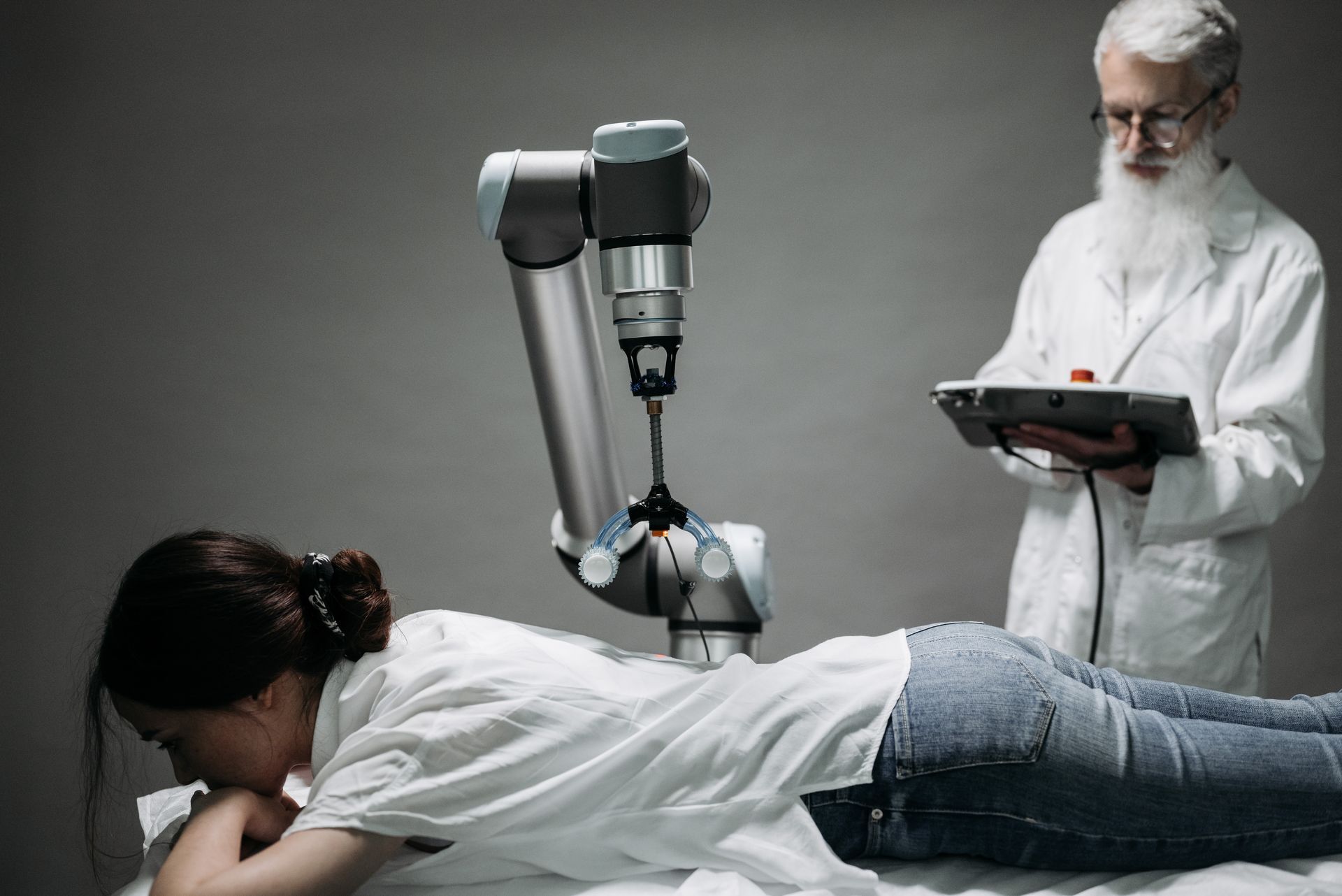AI Questions and Answers
AI in the future medical industry and beyond into the broader economy

Various sectors, including medicine and healthcare, are increasingly utilizing artificial intelligence (AI). In the healthcare industry, there has been significant research into the use of AI, with expectations for further transformation in the future (Jiang et al., 2017). AI tools are being applied to medical diagnosis, drug discovery, and disease prediction, as they can identify patterns and predict outcomes, thereby enabling medical professionals to make more informed decisions. However, there are numerous ethical concerns related to patient privacy, data protection, and accountability, which must be addressed.
The use of AI in surgery has resulted in improved patient outcomes and increased surgical efficiency (Hashimoto et al., 2018). AI can analyze pre-operative images and recommend optimal surgical approaches, as well as provide real-time analysis during surgery, improving accuracy and reducing surgical time. However, this process also raises questions regarding safety and liability.
Makridakis (2017) outlines the potential of AI to transform labour market and reshape economies. To accommodate the rise of AI, society and businesses should be prepared to handle the creation of new jobs and industries as well as the loss of some jobs. The responsible use of AI is critical to its future. According to Müller and Bostrom (2016), AI experts believe that developing AI that is both safe and beneficial is a top priority. Bostrom and Yudkowsky (2018) assert that ethical considerations, including the potential risks and benefits, should be taken into account when developing AI. To use AI responsibly, it is necessary to address issues such as bias, transparency, and accountability.
In summary, AI has the potential to revolutionize various sectors in a positive way, but it must be used responsibly to address ethical concerns such as privacy, accountability, and safety. Therefore, stakeholders from different sectors should collaborate in developing and implementing ethical AI policies to ensure responsible AI development and usage.
REFERENCES:
Bostrom, N., & Yudkowsky, E. (2018). ‘The ethics of artificial intelligence’. In Artificial intelligence safety and security (pp. 57-69). Chapman and Hall/CRC.
Hashimoto, D. A., Rosman, G., Rus, D., & Meireles, O. R. (2018). ‘Artificial intelligence in surgery: promises and perils’. Annals of surgery, 268(1), pp.70-76.
Jiang, F., Jiang, Y., Zhi, H., Dong, Y., Li, H., Ma, S., ... & Wang, Y. (2017). ‘Artificial intelligence in healthcare: past, present and future’. Stroke and vascular neurology, 2(4).
Makridakis, S. (2017). ‘The forthcoming Artificial Intelligence (AI) revolution: Its impact on society and firms’. Futures, 90, pp.46-60.
Müller, V. C., & Bostrom, N. (2016). ‘Future progress in artificial intelligence: A survey of expert opinion’. Fundamental issues of artificial intelligence, pp.555-572.
Also consider the following:
Russell, S. J., & Norvig, P. (2016). ‘Artificial intelligence: A modern approach’. Pearson Education Limited.
Topol, E. J. (2019). ‘High-performance medicine: the convergence of human and artificial intelligence’. Nature medicine, 25(1), pp.44-56.
Krittanawong, C., Zhang, H., Wang, Z., Aydar, M., & Kitai, T. (2021). ‘Artificial intelligence in precision cardiovascular medicine’. Journal of the American College of Cardiology, 77(21), pp.2665-2682.
Wang, Y., Huang, C., Peng, Y., Lai, K. K., Liu, S., Wang, L., & Chen, J. (2021). ‘Artificial intelligence in neuroimaging: advances and prospects’. Frontiers in neuroscience, 15, p.640858.
Cho, D. Y., Liau, W. R., Lee, C. Y., Liu, J. T., Huang, C. Y., & Lee, W. Y. (2021). ‘Artificial intelligence for neurosurgical decision-making’. Journal of neurosurgery, 135(1), pp.215-225.
Pacheco, F., Pennington, A., & Verschure, P. F. (2021). ‘The role of artificial intelligence in shaping the future of personalized neurorehabilitation’. Journal of neuroengineering and rehabilitation, 18(1), pp.1-14.










